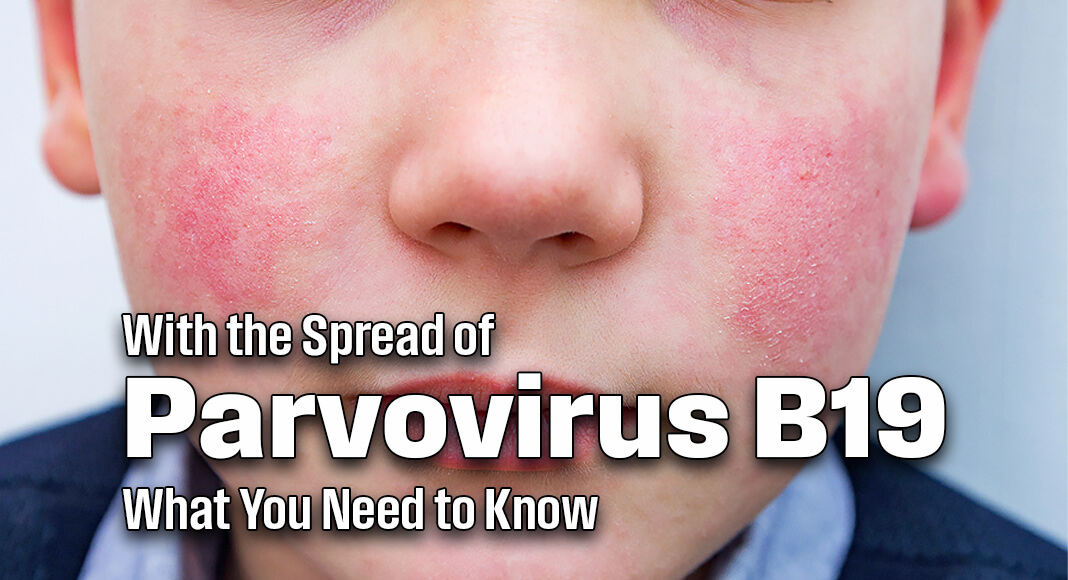
Mega Doctor News
AT A GLANCE
- Parvovirus B19 infection is usually mild in people who are otherwise healthy.
- Common symptoms include “slapped cheek” rash in children, and joint pains in adults.
- Complications can occur among people with underlying blood disorders or weakened immune system.
- Infection early during pregnancy can cause a slight increase in the risk of a miscarriage.
Overview
Parvovirus B19 infection usually causes no symptoms or mild illness, such as flu-like symptoms, rashes and joint pains. In individuals with blood disorders or a weakened immune system, infection can cause a low blood count. Infection during pregnancy can sometimes lead to additional complications.
Some people who get infected with this virus will have no symptoms.
When symptoms of parvovirus B19 infection occur, they are usually mild and may include the following:
- Fever
- Headache
- Cough
- Sore throat
- Rashes
- Joint pain
Rashes
The clinical presentation most often associated with parvovirus B19 infection is a red rash on the face, also called a “slapped cheek” rash. This is also known as Fifth Disease (or Erythema Infectiosum). This rash typically appears a few days after the fever or flu-like symptoms. It is more common in children than adults.
Parvovirus B19 infection can also cause a general rash on the chest, back, buttocks, or arms and legs. The rash may be itchy. It usually goes away in 7 to 10 days but can come and go for several weeks. As it starts to go away, it may look lacy.
Joint Pain
Infection with parvovirus B19 can lead to pain and swelling in the joints, called polyarthopathy syndrome. This is more common in adults and children and is most common in women.
Adults may experience joint pain without other symptoms. Joints are affected on both sides, usually in the hands, feet and knees. The joint pain usually lasts 1 to 3 weeks but can last for months or longer. It usually goes away without any long-term problems.
Parvovirus B19 infection is usually mild for children and adults who are otherwise healthy. However, for some people, it can cause serious health complications affecting the nerves, joints, or blood system.
Parvovirus B19 has been shown to cause a severe drop in blood count (anemia) in some patients with certain blood disorders or with a weakened immune system.
You may be at increased risk for complications from a parvovirus B19 infection if you have one or more of these health conditions:
- Leukemia or other cancers
- Organ transplant
- HIV infection
- Blood disorders such as sickle cell disease and thalassemia
Parvovirus B19 in pregnancy
If you get a parvovirus B19 infection during pregnancy, the virus could spread to the baby. This is not common but could cause a miscarriage. See ‘Parvovirus B19 in Pregnancy’ for further information.
In special circumstances, your healthcare provider may test your blood for parvovirus antibodies. The test will determine if you are susceptible or possibly immune to parvovirus B19 infection or if you were recently infected.
Talk to your healthcare provider if you have any questions about whether you should get tested.
Parvovirus B19 infections are usually mild and will go away on their own. Children and adults who are otherwise healthy usually recover completely.
Treatment usually involves relieving symptoms, such as fever, itching, and joint pain and swelling. For persons who develop a low blood count, treatment may include supportive care, blood products, and other specialized therapies.
See your healthcare provider if:
- You have complications from a parvovirus B19 infection, or
- You are infected while pregnant.
Information Source: CDC










